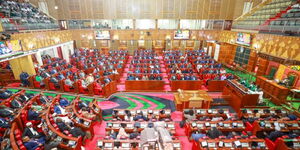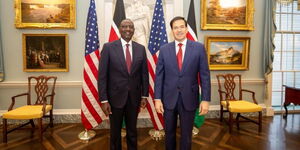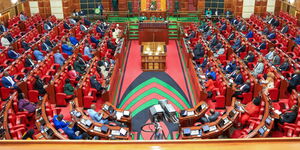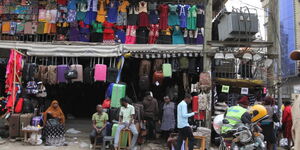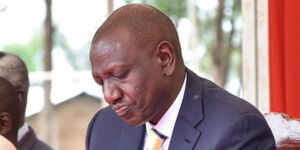Following recent scandals that rocked the Social Health Authority (SHA), the World Bank's Division Director for Kenya, Rwanda, Somalia, and Uganda, Qimiao Fan, has urged the country to urgently adopt a new fiscal compact aimed at addressing the country’s health sector investments, rising debt, and worsening jobs crisis.
In an opinion piece published in The Standard on Monday, the director argued that spending cuts alone would not close Kenya’s fiscal gap and emphasised the need to spend smarter in key sectors such as health and infrastructure.
“Protecting investment in health, education, climate resilience, and infrastructure is critical. But inefficiencies are estimated at about Ksh608 billion, according to the Ethics and Anti-Corruption Commission, and are a drain on resources,” he wrote.
He illustrated the opportunity cost of such wastage, noting that redirecting even part of the lost funds could finance a new Talanta Stadium and cover the wage bill for 100,000 junior secondary school teachers every year.
The World Bank official also highlighted the massive losses arising from tax exemptions, which cost Kenya over Ksh510 billion annually, or about 3.4 per cent of GDP. Citing the 2024 Tax Expenditure Report by the National Treasury, Fan said, “This is enough to build a new Nairobi Expressway every year.”
Fan urged the government to reform tax exemptions and strengthen property and wealth taxes in order to boost revenues “without overburdening ordinary citizens.”
On job creation, he called for measures to empower the private sector, stressing that employment mainly comes from private enterprise.
“Streamlining regulation, improving access to finance, and lowering borrowing costs can unlock growth,” Fan explained.
He further asked the government to consider investing in Kenya’s youthful population through skills development. Expanding vocational training, improving school-to-work transitions, and supporting innovation would, he argued, help prepare young people for a rapidly changing economy.
The World Bank also called for Kenya to lead in the green economy with investments in clean energy, climate-smart agriculture, and resilient infrastructure.
Additionally, Fan warned that corruption remains both a moral and economic challenge. He gave the example of bribes to traffic police, which he estimated at 0.5 per cent of GDP annually.
“Corruption is both a moral and economic issue. Eliminating bribes to traffic police, worth about 0.5 per cent of GDP annually, could within five years finance the full Standard Gauge Railway expansion to Uganda or fund a nationwide social protection upgrade, raising benefits to Ksh3,000 a month, expanding to the poorest counties, and strengthening climate resilience.”
According to the bank’s latest Public Finance Review, implementing these five policy options could cut Kenya’s debt-to-GDP ratio by one-third within a decade, restoring levels last seen in the early 2010s.
Meanwhile, in its latest report released on May 27 under the theme Public Finance Review (PFR), the international lender called for a review of both the rollout and the approach to funding the Universal Health Coverage (UHC) programme, which birthed SHA, especially the financial burden placed on citizens.

